Should You Trust Pet DNA Tests?
Dr. Lisa Moses, Angell Animal Medical Center
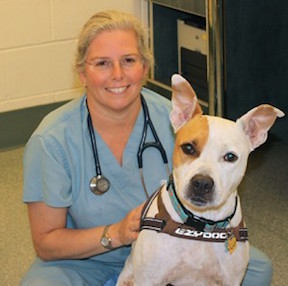 Dr. Lisa Moses says there is a place for DNA tests, but only as a novelty. While these tests may show a predisposition towards breed specific diseases, she warns against making medical decisions based on a DNA swab or blood test.
Dr. Lisa Moses says there is a place for DNA tests, but only as a novelty. While these tests may show a predisposition towards breed specific diseases, she warns against making medical decisions based on a DNA swab or blood test.
Dr. Lisa Moses practices pain and palliative care at the Angel Animal Medical Center in Boston. She talks about DNA testing for our animals and how much validation we should be giving these tests. According to Dr. Moses, it all depends really on whether or not you're talking about the tests that tell you about your pet's ancestry or you're talking about the genetic tests that tell you about mutations that might be linked to diseases. These are really two different things.
There are also some genetic tests that you can do on your dog now that are very similar to the kinds that you can do for yourself, according to Dr. Moses. These tests consist of doing a cheek swab on your dog where you send it off to a lab. You then might get back information about your dog's ancestry, but you might also get back a whole list of mutations or genetic variances. These can tell you if your dog has a change in their DNA that might be associated with a particular disease. So it's different than just knowing what type of breed you have.
For example, if you have a golden retriever, you know that golden retrievers in general are prone to a particular kind of cancer. However, the tests will tell you more about your dog in particular.
So how accurate are these tests? There have been reports of both the cheek swab test and blood tests, which have come back completely different after both versions were tested on the same dog. Dr. Moses explains that this is pretty much why they started looking into this, because they heard a lot of these stories.
However, Dr. Moses was much more concerned about people who were starting to use these tests to make medical decisions. What she found was that she really doesn't know a whole lot. This is because the tests are largely proprietary and the companies don't have to tell them the way they do them, what kind of methodology they use and whether or not they validated the results. So she really doesn't know how useful the information is.
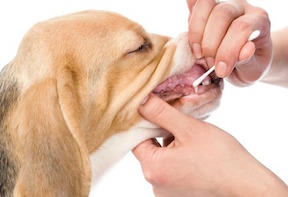 What Dr. Moses found out when they started looking into this, is that they found exactly the same issues happened when people started getting these kinds of tests for themselves. The human tests are regulated so that now there's a really high bar for you to be able to say that a genetic variant causes diseases in a person. Unfortunately, we don't have that kind of system in dogs. So it's really hard to know what to do with that information.
What Dr. Moses found out when they started looking into this, is that they found exactly the same issues happened when people started getting these kinds of tests for themselves. The human tests are regulated so that now there's a really high bar for you to be able to say that a genetic variant causes diseases in a person. Unfortunately, we don't have that kind of system in dogs. So it's really hard to know what to do with that information.
Dr. Debbie tells us about a possible scenario where someone might want to do this kind of testing. For example, if a Doberman Pinscher walks into her office, they know that the breed is known for dilated cardiomyopathy. The owner wants to know, before it's either bred or before she even purchases this dog, what is the potential genetics of it having or developing that disease down the road?
Dr. Moses explains that even if there are blood tests done through individual labs, rather than these big panels, we still don't have the kind of follow up information to say that of the 10,000 Dobermans that have been tested that have this genetic variant, how many of them actually ended up developing cardiomyopathy. That's the information they don't have.
The whole reason that Dr. Moses started looking into this, and ultimately wrote an editorial, is because there are actual case studies where somebody made a poor decision based on a DNA test some years ago.
There are a number of genetic tests that primary care veterinarians are doing in their offices. What Dr. Moses was starting to see in her practice was primarily with dogs that had neurologic problems. She explains that the hard part about neurologic problems is that in a certain sense, a lot of them look the same on the outside. Without much more extensive testing, you may not be able to tell the difference between a dog who has a problem in their spine as opposed to a dog who has a problem in the nerves and their legs. So she was getting concerned that people were doing genetic tests and assuming that the cause of what they were seeing was this genetic mutation and not doing further testing to try to make sure it wasn't some fixable problem.
Dr. Moses even feels that there have been people who have euthanized their dog after a DNA test showed there was a chance the dog might develop something serious. This is her greatest fear and what pushed her to look into this.
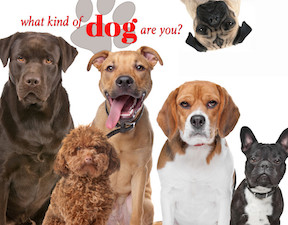 So ultimately the question is, should we do a DNA test on our pets? In answer to this question, Dr. Moses says she has not done one on her own dog. She thinks that if you want to do it to get some information about your dog's ancestry and you're approaching it as something interesting and you just want the information but you're not going do anything to your dog on the basis of the results, then sure. It's interesting. It's fun.
So ultimately the question is, should we do a DNA test on our pets? In answer to this question, Dr. Moses says she has not done one on her own dog. She thinks that if you want to do it to get some information about your dog's ancestry and you're approaching it as something interesting and you just want the information but you're not going do anything to your dog on the basis of the results, then sure. It's interesting. It's fun.
Maybe it will provide more information when we learn more about how to use these tests. However, for now, she wouldn't use them to make medical decisions.
There are a whole lot of DNA tests available. Many of them are cheek swab tests and others are blood tests. So are you throwing your money down the toilet with the cheek swab test? Dr. Moses states there is not any reason to think that the cheek swab tests or any less valid than the blood tests. It totally depends upon what methodology the lab is using and that is information that they are not obligated to share. However, cheek swab testing is a valid way to collect a DNA sample. It's what happens after you've collected it and do something with it that matters, and that's the part she really doesn't know.
Visit Website
Pets Cause 1,000 Fires Per Year
Zsolt Sapy, Smoke Alarm Monitoring (SAM)
 "Unattended pets often set their homes on fire and pets can't call 911," according to Zsolt Sapy, the COO of Smoke Alarm Monitoring. Just how does this happen? What can you do to stack the odds in your pet's favor?
"Unattended pets often set their homes on fire and pets can't call 911," according to Zsolt Sapy, the COO of Smoke Alarm Monitoring. Just how does this happen? What can you do to stack the odds in your pet's favor?
There are about a million and a half fires every single year. About 4,000 humans will die from fires, while those house fires affect 40,000 pets every single year, because they unfortunately can't pick up the phone and dial 911 and they can't get out. So they're stuck in the home whether or not they started the fire.
Zsolt Sapy, of Smoke Alarm Monitoring (SAM), tells us that pets start many of these house fires. These fires are usually started by large breed dogs or cats that will get up onto the stove. So why are our pets going to the stove? They smell food. For example, when we cook the bacon in the morning and then we light a candle to get rid of the smell, they're going to run over there. They're curious and they start sniffing around. The large breed dogs are going to jump up. They may then start turning the knobs on the stove by accident. But before you know it, enough gas fumes build up and the candle will start a fire through an explosion.
That's the absolute worst-case scenario, because that's a total loss. But you also have pets that are chewing on wires. The worst culprits are cats, as they love to chew on wires. You can prevent this from happening by running to your local hardware store where they actually sell little wire looms allowing you to wrap up all of your computer wires and everything else that's loose to protect them from pets chewing on them.
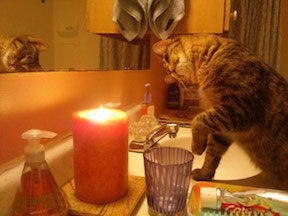 Every year pets directly cause about 1,000 fires. However, there are many more pets that are affected every single year by house fires and those are the ones that Smoke Alarm Monitoring (SAM) really wans to focus on. These animals are stuck in the house and it's usually the smoke that does them in, because by the time your neighbors or somebody else sees the smoke coming out of the house, the entire home is already in engulfed.
Every year pets directly cause about 1,000 fires. However, there are many more pets that are affected every single year by house fires and those are the ones that Smoke Alarm Monitoring (SAM) really wans to focus on. These animals are stuck in the house and it's usually the smoke that does them in, because by the time your neighbors or somebody else sees the smoke coming out of the house, the entire home is already in engulfed.
Animals tend to hide during disasters. They may run under beds or hide in closets, which is one of the issues of getting them out. Zsolt explains that it's very important to have a good fire safety plan in place, not just for the humans, but for your pets as well.
One of the easiest ways to do that is by putting signage on to your front and back doors. You can place a sticker on your doors stating that, "In case of fire, occupants in this residence include…" then there are little check boxes for how many adults, how many children, dogs, cats, reptiles, or birds are in the house.
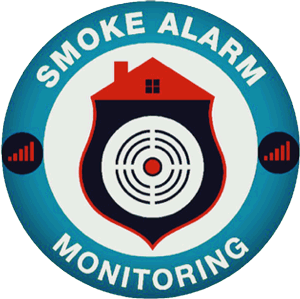 You can also put additional instructions as to where your pet's safe place is that they run to when they are scared. That could be a crate or any part of the house where they know that they're safe. Unfortunately, emergency services won't know where these places are unless it's indicated on that sticker.
You can also put additional instructions as to where your pet's safe place is that they run to when they are scared. That could be a crate or any part of the house where they know that they're safe. Unfortunately, emergency services won't know where these places are unless it's indicated on that sticker.
These stickers are available for free from your local fire department as well as from Smoke Alarm Monitoring (SAM).
SAM is the only patented, battery powered Smart Detector that uses cell networks to connect with emergency operators when it senses smoke. Protect your family, pets and your home by reducing response time with 24/7 real time monitoring.
Why use a photoelectric smoke detector? Because the regular ionization detectors most people use are meant to detect "fast flames," like those from burning food on a stove. Photoelectric smoke detectors sense slow, smoldering smoke, like that from burning furniture.
Visit Website
Animal Radio Flashback

 This Man Loves Himself Some Kitty!
This Man Loves Himself Some Kitty!
Ed Asner
Iconic Actor Ed Asner is our flashback to 2010. Bet you didn't know Ed is a "cat" guy? His satirist banter and love for his personal kitties makes this one of most memorable moments of Animal Radio.
Ed Asner is best known for his role as the character of Lou Grant from "The Mary Tyler Moore Show" and then on his own show, "Lou," that bore his character's name,
Ed was nominated for an Academy Award for his performance and "Up" also tied with the movie "Hotel For Dogs," winning a Genesis Award. Asner may always play the role of a curmudgeonly old man, but when it comes to his cats, he's anything but surly.
 When asked why he has never had dogs as part of the family, Asner replies, "I love dogs, but in my peripatetic life, it's much easier to live with cats." I can leave them with friends and they don't commit Harry Carey in my absence." Dogs need more attention.
When asked why he has never had dogs as part of the family, Asner replies, "I love dogs, but in my peripatetic life, it's much easier to live with cats." I can leave them with friends and they don't commit Harry Carey in my absence." Dogs need more attention.
Ed explains that his cat Wheezy needs to be with him and even sleeps on top of his head. Wheezy got his name because when Ed acquired him, he was suffering from herpes in his lungs. He is now cured, but before that he did a lot of wheezing. His other cat is Archie or Archibald. However, it doesn't matter what you call him, because he doesn't respond to any name. Archie lies to stay outside, but if he does come home, he likes to sleep on a chair or the couch.
Asner, like everyone else, is very upset at the oil spill in the gulf. He tries to be green and currently drives a Prius. He would like to be a vegetarian because he thinks he would be a lot slimmer. But he finds it too hard, because he likes prepared food and eats out a lot.
E-Cigarette Toxicity in Pets -Dr. Debbie
 Think that vapor cigarettes (a.k.a. electric cigarettes or e-cigarettes) are a healthier alternative to traditional cigarettes? The vapor habit might be better for you and decrease your pet's exposure to second hand smoke, but can increase the chance of a pet's toxic ingestion of nicotine. A story from England told of the tragic death of a puppy that died after chewing on an e-liquid container.
Think that vapor cigarettes (a.k.a. electric cigarettes or e-cigarettes) are a healthier alternative to traditional cigarettes? The vapor habit might be better for you and decrease your pet's exposure to second hand smoke, but can increase the chance of a pet's toxic ingestion of nicotine. A story from England told of the tragic death of a puppy that died after chewing on an e-liquid container.
Ivy was a 14 week on Staffordshire Bull Terrier that chewed on her owner's bottle of e-liquid used to refill the electric cigarettes. Within 30 seconds of nibbling on the container, she fell sick with vomiting and disorientation and was rushed to a veterinary office. Sadly Ivy died within 24 hours due to heart and respiratory failure.
What's in e-liquid?
The ingredients in e-liquid vary but include carriers such as propylene glycol, polyethylene Glycol 400 and vegetable glycerin, as well as flavoring agents and nicotine. The amount of nicotine in e-liquid varies with some products not containing any nicotine, to others ranging from 18 mg/ml to 100mg/ml.
How toxic is nicotine?
The toxic dose of nicotine for pets is 0.5 to 1mg per pound of body weight. The fatal dose is 4mg per pound. So if you consider a 20 pound dog, toxicity would occur if 10mg were ingested, and the pet would die if 80mg were ingested. Therefore with the high nicotine levels in e-liquid, it wont take much to reach those fatal levels. That hypothetical 20 pound dog could die from less than 1ml of the highest potency liquid nicotine.
Pets likewise can develop toxicity if other sources of nicotine are ingested such as cigarettes, chewing tobacco, nicotine gum, or nicotine nasal sprays. The typical amounts of nicotine in these products are: Cigarette 9-30 mg; Nicotine gum 2 - 4 mg per pieces; and Nicotine patches 8.3 - 114 mg.
 Even cigarette butts can be toxic if enough are ingested - cigarette butts retain 25-percent of the nicotine in the original cigarette.
Even cigarette butts can be toxic if enough are ingested - cigarette butts retain 25-percent of the nicotine in the original cigarette.
What are symptoms of nicotine poisoning?
Symptoms usually develop within one hour of ingestion. Pets may display excitability, rapid heart rate, drooling, vomiting, diarrhea, weakness, seizures, and coma.
How are pets treated for nicotine toxicity?
The first step is to decontaminate by inducing vomiting. Nicotine typically causes vomiting when ingested, but further decontamination is advised at the veterinary office. Other emergency care includes intravenous fluids, medications to manage elevated blood pressure and heart rate, and anti-seizure medications. Nicotine is metabolized by the liver and excreted within 16 hours after ingestion. Pets that survive the initial four hours after ingestion have a favorable chance of survival.
The vapor cigarette trend is becoming more popular world wide. It's important to recognize that nicotine is a toxin and poisonous to animals and children. Consider the e-liquid a hazardous material and store it safely in a locking cabinet, away from children and pets.
To read more about Ivy's toxicity after ingesting E-fluid go to "Dog dies after chewing e-fluid container."
Featured veterinarian known as "Dr. Debbie" on national pet radio program, Animal Radio. Ebook author of "Yorkshire Terriers: How to Be Your Dog's Best Friend"; "Pugs: How to Be Your Dog's Best Friend"; "Mini Schnauzers: How to Be Your Dog's Best Friend"; and "Shih Tzu: How to Be Your Dog's Best Friend." Dr. Debbie's books.
Visit Website
Animal Radio News - Lori Brooks
 Is Your Pet Dangerous?
Is Your Pet Dangerous?
Onslow County Animal Services in North Carolina says it is moving toward making changes to keep you and your family safe from dangerous dogs. A proposed ordinance in the county could require dog owners to explicitly let the community know if their pet is dangerous. In North Carolina, a dog is classified as dangerous if it has bitten a human two or more times. The ordinance would give the owners of those dogs three days from the time their dog is determined to be dangerous to appeal. A few of the proposed precautions are for owners to muzzle their dogs while on walks, update outside kennels to have a roof and place a sign saying "Beware of Dog" on their property. The County Board of Animal Services expects to hold a vote on the changes to the existing ordinance next month.
Foods That Are Harmful to Cats
A new study of 2,000 cat owners reveals many of them are oblivious about what foods could be harmful to their cat's health. More than 50-percent of those questioned did not know that milk, grapes, raisins, garlic and onions were hazardous to a cat's health. Nearly 40-percent thought it was okay to give a cat coffee, tea, alcohol and chocolate. A fifth of owners don't even know their cats are carnivores, with one in 10 feeding them raw vegetables and another one in 20 serving up salad leaves. The research, commissioned by Lily's Kitchen, also found nearly four in 10 cat owners never check the label when buying cat food. One in 20 simply buy the cheapest cat food on sale and 15-percent swap from brand to brand depending on what's the least expensive.
 Cat Lovers' Dream Job
Cat Lovers' Dream Job
If you've ever thought of quitting your job and living out your life saving cats on a picturesque Greek island, then this job is for you! A cat rescue in Greece, called God's Little People Cat Rescue, is looking for a new caretaker. They're looking for a part-time caretaker to look after 55 cats with free lodging in the form of the sanctuary manager's house that overlooks the Aegean Sea.
Most Friendly Pet Cities
Over 85 million U.S. households that have pets are expected to spend $72 billion this year, according to the personal finance website WalletHub.com, which has released a report on this year's Most Pet-Friendly Cities. The lowest scoring cities in the bottom five were: Baltimore, Maryland; Laredo, Texas; Fort Wayne, Indiana; Buffalo, New York; and the worst at #100 is Honolulu, Hawaii. The most animal friendly cities of the 100 cities that were ranked, have Phoenix as number five; Austin Texas is number four; San Diego is number three; Orlando, Florida is number two; and the most animal friendly city in the country this year being Scottsdale, Arizona. A few other key findings: Columbus, Ohio, has the lowest average veterinary care costs per visit at $37.26. New York City has the highest at $79.30 per visit. Miami has the most veterinarians. St. Paul, Minnesota, has the lowest monthly dog-insurance premium at almost $35 while New York City is the highest at $83.50 a month.
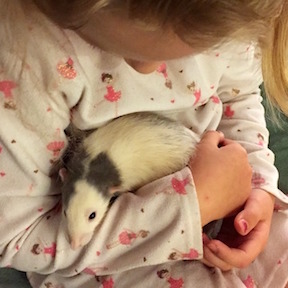 Kids Prefer Rats Over Cats and Dogs
Kids Prefer Rats Over Cats and Dogs
RightPet.com, which is an online resource for pet owners, has announced the findings of its eight-year long pet ownership study that used the data of nearly 17,000 pet owners across 113 countries. It's likely that the biggest headline from the study will be the revelation that children between the ages of 10 and 17 years old say they get more satisfaction owning pet rats than cats or dogs. Other findings on the "Women vs. Men" or "Dogs vs. Cats" Debate: Women like cats more than dogs. In contrast, men like cats and dogs the same. From the size matters category, women and men are both more satisfied with larger dog breeds than small breeds. This is especially true for men, who are happiest with large and giant dog breeds. Another revelation is that men who describe themselves as moody tend to be less satisfied with cats than more emotionally stable men. In contrast, moody and anxious women tend to enjoy cats just as much as their more emotionally stable peers. The "Least Favorite Pets to Own," based on 32 types of pet and livestock animals that were included in the survey, are geese and scorpions.
 Listen to the entire Podcast of this show (#977)
Listen to the entire Podcast of this show (#977)





